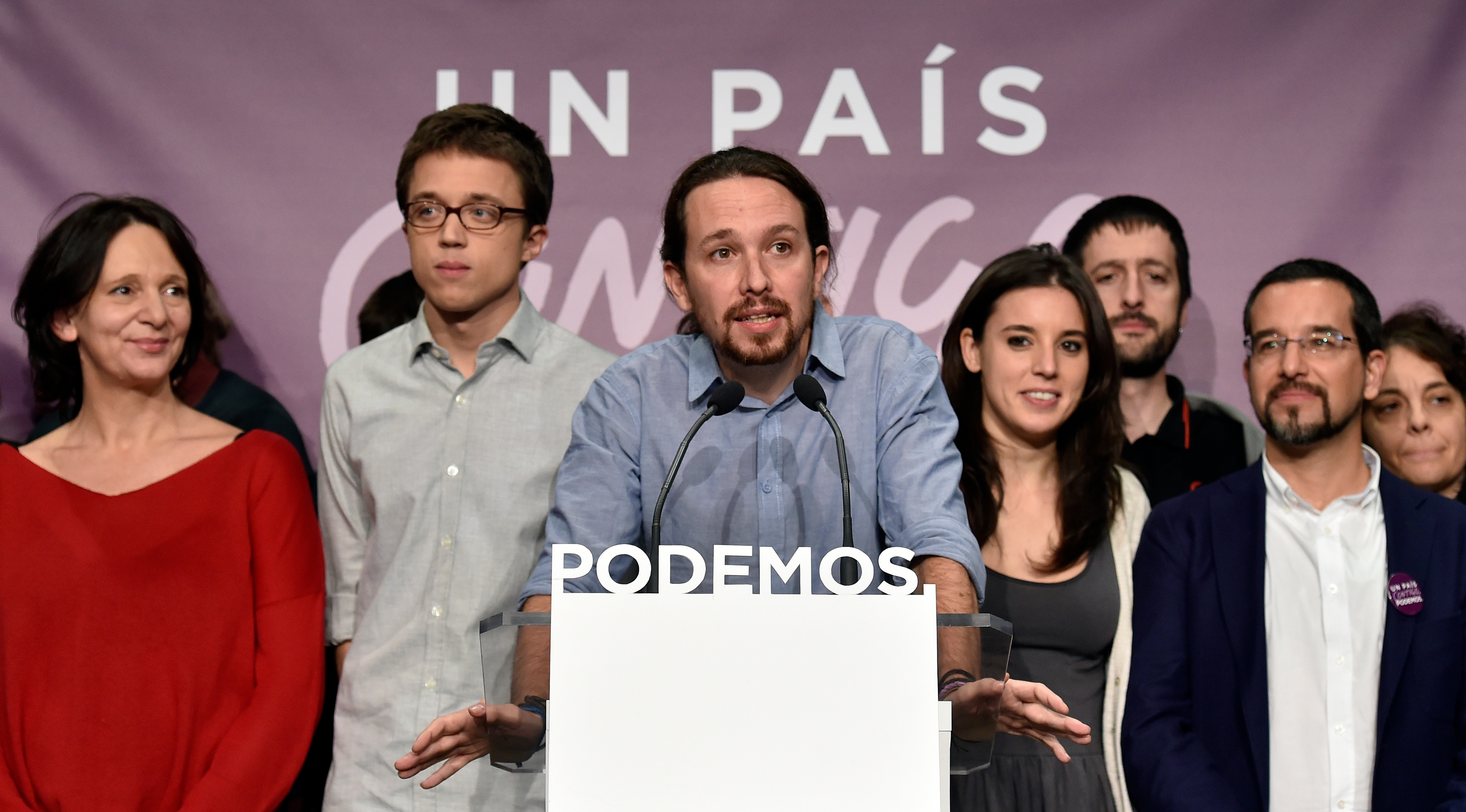If you hear any of your friends refer to the rise of Podemos in Spain as a revolution, please buy them a dictionary for Christmas.
For far from representing the sweeping aside of the political establishment by a new, angry class in society — which is what a revolution is — the success of Podemos speaks to the emergence of simply a different kind of political elite.
Let’s call them politico-academics, former inhabitants of the ivory tower, who are armed with PhDs rather than cudgels, and who are more likely to install a Dictatorship of the Professors than a Dictatorship of the Proletariat.
This isn’t to distract from the enormity of what has happened. That Podemos won 20% of the vote is remarkable, considering this anti-austerity party was founded just over a year ago.
But the success of Podemos speaks more to the corrosion of the old, two-party politics than it does to the rise of a truly new politics, far less a newly confident constituency.
The crisis of the old right-left divide, manifesting itself in myriad ways across Europe, is the real driver of events in Spain, not the programme of Podemos — which is not especially coherent, never mind spine-tingling.
That we aren’t witnessing the storming of the citadels of power by a revolutionary project is clear from both the make-up of Podemos’s leadership and the ideas they promote: they’re academics, and their ideas consist in the main of the hackneyed intellectual fare of the post-ideological, post-industrial, post-class New Left that has been stinking up academia for 40 years.
Podemos was forged, not in the fires of street battles, but in air-conditioned university offices. Its leaders are lecturers, researchers, and pretty po-mo ones at that.
Party leader Pablo Iglesias has spent most of his adult life in the academy, far from the madding crowd. Think of that thirtysomething bloke you know who has done a BA, MA and PhD and is now engaged in some EU-funded research into something no one understands or cares about, and you’re thinking of Iglesias.
Thirty-seven, Iglesias has spent more time studying the masses than rubbing shoulders with them. As one account puts it, he ‘studied law at the Complutense University before taking a second undergraduate degree in political science. He went on to write a PhD thesis on disobedience.’ Radicals once engaged in disobedience; now they write PhDs about it.
It was at Complutense that Iglesias hooked up with the other ‘key figures’ behind Podemos. Together they developed their plan to build a party, not through talking to the throng, but — get this — ‘over dinner’ at the ‘summer university’ of a tiny left-wing party. These really are dinner-party radicals.
Not surprisingly, their thinking is entirely in keeping with the outlook of the removed academy. They’re big on identity politics, on ‘saving the planet’, on viewing the little people as incapable of handling difficult ideas.
Indeed, far from being fiery revolutionaries, Podemos plays down class. It takes inspiration from academic thinkers who insist the left should ‘no longer focus on class warfare’ and instead should seek to ‘unite discontented groups, such as feminists, gay people’ etc. Forget the working man — it’s identity blocs that matter now..
The dinner-party founders of Podemos are fanboys of Antonio Gramsci, the Italian Marxist whose big concern was the ‘machinery that shaped public opinion’. Ingrained with the Gramscian conviction that people are easily confused by wicked media men, Podemos resolved to keep its message to the masses ‘simple’ and ‘emotionally engaging’.
You can almost smell the paternalism. It’s that old academic canard that We do the big thinking while They can only handle morsels of info.
One of the key academic influences behind Podemos — Marxist couple Ernesto Laclau and Chantal Mouffe — believe the left needs ‘a charismatic leader who [fights] the powerful on behalf of the underdogs’, and that’s what Podemos has done. ‘On behalf of’? The masses here are a stage army, not a real army.
We’ve also seen the rise of politico-academics in Greece. Syriza’s leading lights were nabbed from universities, especially British ones. ‘How British universities helped mould Syriza’s political elite’, as one headline put it.
Even Yanis Varoufakis, Syriza’s erstwhile Minister of Finance who made fiftysomething Guardianistas weak at the knees, had spent his entire career in universities, mostly outside Greece, before being handpicked by Tsipras to run the economy. No amount of swooning over ‘revolutionary’ Varoufakis can disguise the fact he’s a politics lecturer in a leather jacket.
Given their academic roots, both Podemos and Syriza inevitably contain the fatal contradiction at the heart of today’s left: they express disdain for Eurozone austerity while cleaving to the most austere ideology of our times — environmentalism.
It’s all but illegal to be an academic these days without swearing allegiance to the green gospel of economic restraint, so naturally the new politico-academics are deeply green. Podemos wants to ‘heal the environment’, including by encouraging local food production. This is a far cry from Marx’s celebration of the capitalist class’s globalisation of production and its accomplishment of wonders ‘far surpassing Egyptian pyramids, Roman aqueducts and Gothic cathedrals’.
So, yes, let’s not lose any sleep over the crisis of the old politics. But we must ask ourselves if the new choice we’re faced with — between uncaring technocrats and cut-off academics — is really much better.








Comments